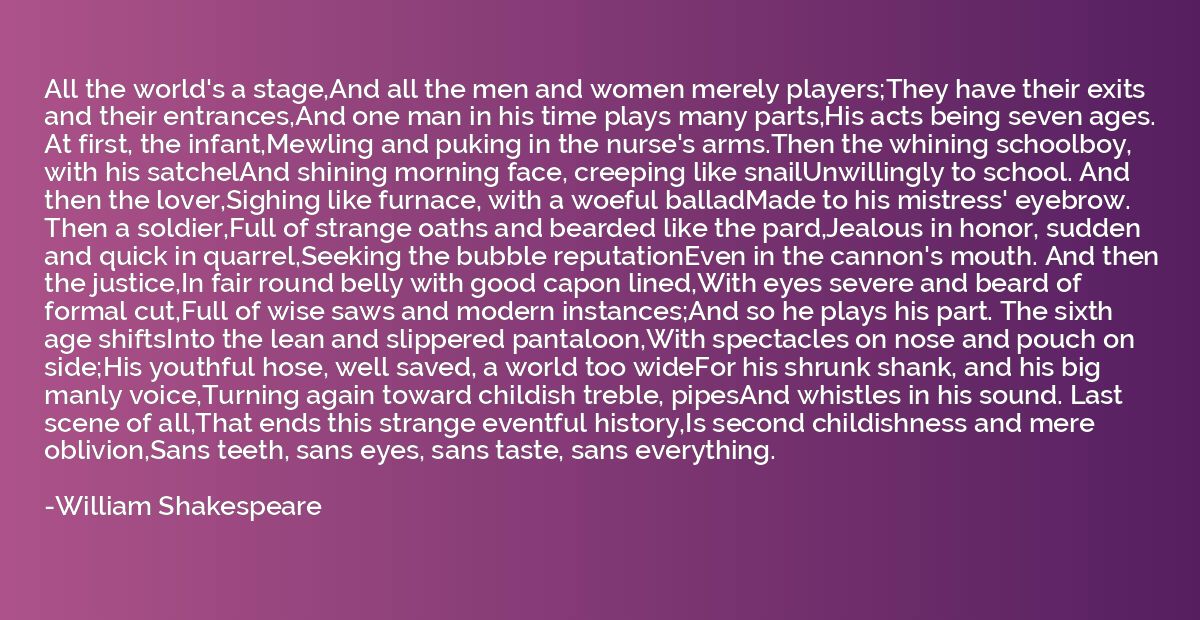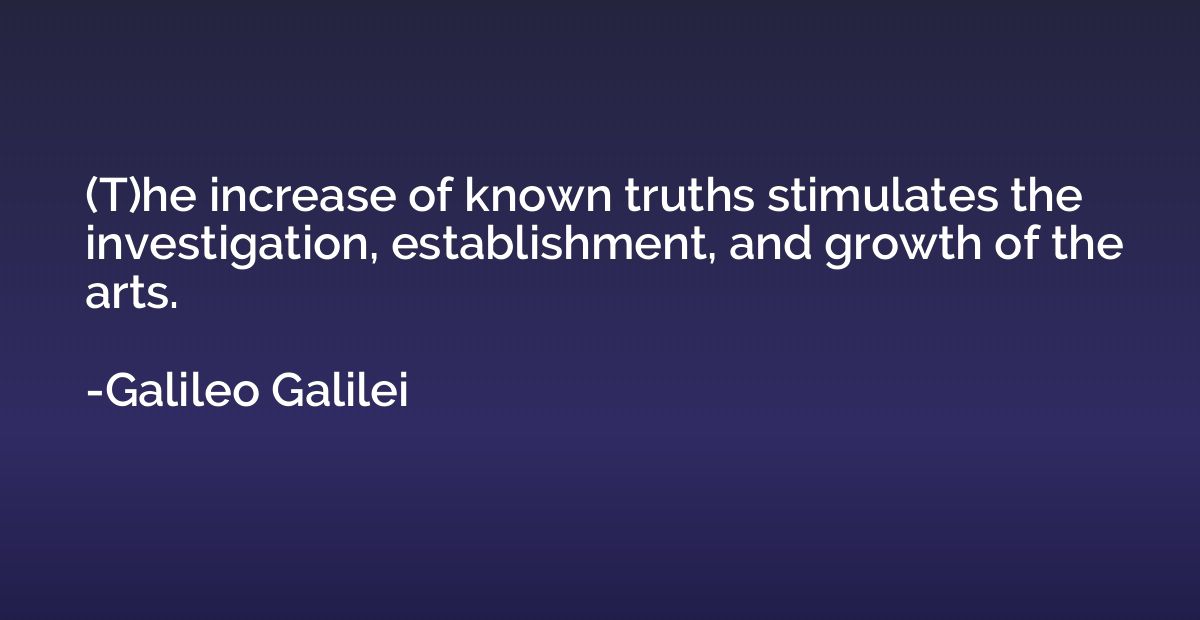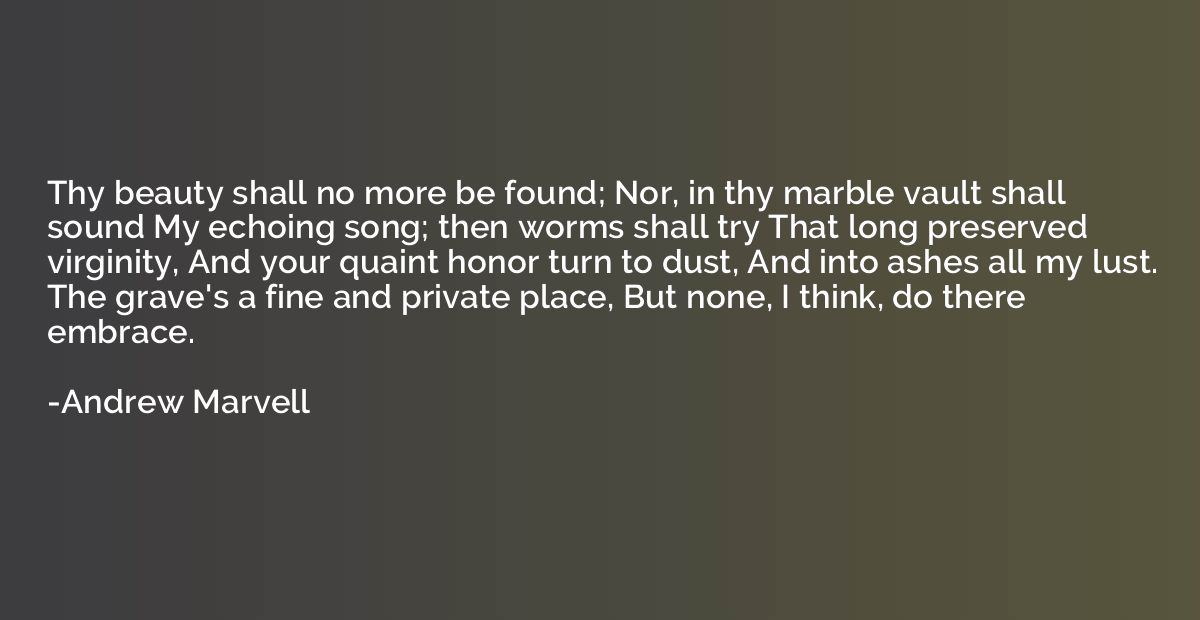Quote by William Shakespeare
All the world's a stage,And all the men and women merely players;They have their exits and their entrances,And one man in his time plays many parts,His acts being seven ages. At first, the infant,Mewling and puking in the nurse's arms.Then the whining schoolboy, with his satchelAnd shining morning face, creeping like snailUnwillingly to school. And then the lover,Sighing like furnace, with a woeful balladMade to his mistress' eyebrow. Then a soldier,Full of strange oaths and bearded like the pard,Jealous in honor, sudden and quick in quarrel,Seeking the bubble reputationEven in the cannon's mouth. And then the justice,In fair round belly with good capon lined,With eyes severe and beard of formal cut,Full of wise saws and modern instances;And so he plays his part. The sixth age shiftsInto the lean and slippered pantaloon,With spectacles on nose and pouch on side;His youthful hose, well saved, a world too wideFor his shrunk shank, and his big manly voice,Turning again toward childish treble, pipesAnd whistles in his sound. Last scene of all,That ends this strange eventful history,Is second childishness and mere oblivion,Sans teeth, sans eyes, sans taste, sans everything.

Summary
This quote, from William Shakespeare's play "As You Like It," is a metaphor for life. It suggests that life is like a stage, and we are all actors playing various roles throughout our lives. It describes the seven stages or ages of man, from infancy to old age and ultimately death. Each stage is defined by different characteristics and experiences. The quote highlights the fleeting nature of life and the unstoppable progression of time, emphasizing that we all follow the same path, transitioning through these stages before reaching our final stage of helplessness and oblivion.














